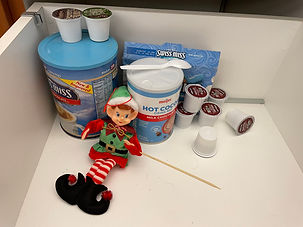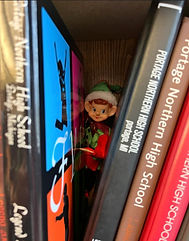Editing and Leadership
Editing
Throughout my years as a student journalist I have held a number of leadership titles, and even helped some fellow students with their senior papers. Through trial and error, I came up with a method of editing that I have found to be effective and something my fellow staff members can get on board with.
Step 1:
The first thing I always do is have the person I'm working with write up their first draft and send it to me to read and make notes.
Step 2:
Step 3:
I set up a meeting with the person where we talk through the notes I made, what they want to keep, what needs to be changed.
After they make a second draft based on our conversation and the notes I give them, I go through and make comments of the smaller things and repeat the process if necessary.
What I like about this process is that it allows for the person whose writing I'm editing to keep their voice and personality. Of the many editors I have had, I personally never liked it when I went in to look at my writing and it was changed. This also allows for me to make more of a connection with my staff members and get to know their style for future projects and assignments.
Editing Example:
How I would edit my old personal narrative.
If I were to revisit this article as an editor I would suggest adding more stories and examples of loving memories--knowing that there were many to choose from--I would also suggest adding more photos that we had taken together and possibly even add an interview with the girls to add more personality. As far as organization I would add sections such as;
What started it all- Where I go more in-depth about the decision and process of moving in to help the girls.
During my time- Stories of my experiences with them and how I learned to do online school and take care of two toddlers during the day, what made me love it so much.
When things had to change- What went into the decision to leave and how leaving made me feel, how I would remember my time with them.
Now and forever- how seeing the girls after so long felt, how spending time with them will changed how I feel about them forever (I'd obviously still love them)
Leadership
Having held a few leadership positions I have learned that the most important thing is making connections, teaching in a way people can understand, and making sure that dates and important events or notes are visible.
Making connections
Getting to know people and making sure they know who you are and that they can rely on you is extremely important. Some ways my advisor and I have done this is through "Fun Fridays" where when we are not on deadline we spend Fridays getting to know each other and playing some games. When we are on deadline and have time we even do "Hot seat", a questions game for a few minutes. This has really created a great camaraderie through our staff. For the month of December, I also did a class Elf on the Shelf that me and my fellow Editor-in-chief would hide daily.

Our elf--Dave the Magical Snow Wizard--hiding in a drawer after he stole all our hot chocolate and coffee.

Dave hiding in between the old yearbooks stored in our lab.
Teaching
When I would help teach a lesson, I would be sure to create a slide deck that was interactive and easy to understand. Something else I found that helped was creating follow along notes that my fellow staffers wouldn't be bored to fill out. I also tried coming up with fun games we could do to help practice our journalistic skills, one of which being an interview game were people would get in pairs: one would be given a celebrity and the other would have to prepare in-depth questions that they would use to try and guess who the celebrity is.
Organization
I have found organization and board keeping to be very helpful. In our journalism lab we have three white boards. One for a calendar I would update every month with deadlines, days off, and birthdays. One for our style guide, designing notes, and seminars during our hour. The last board that updates daily with notes and a quote of the day. I have found that this not only keeps us all on track but it promotes more awareness and productivity.
